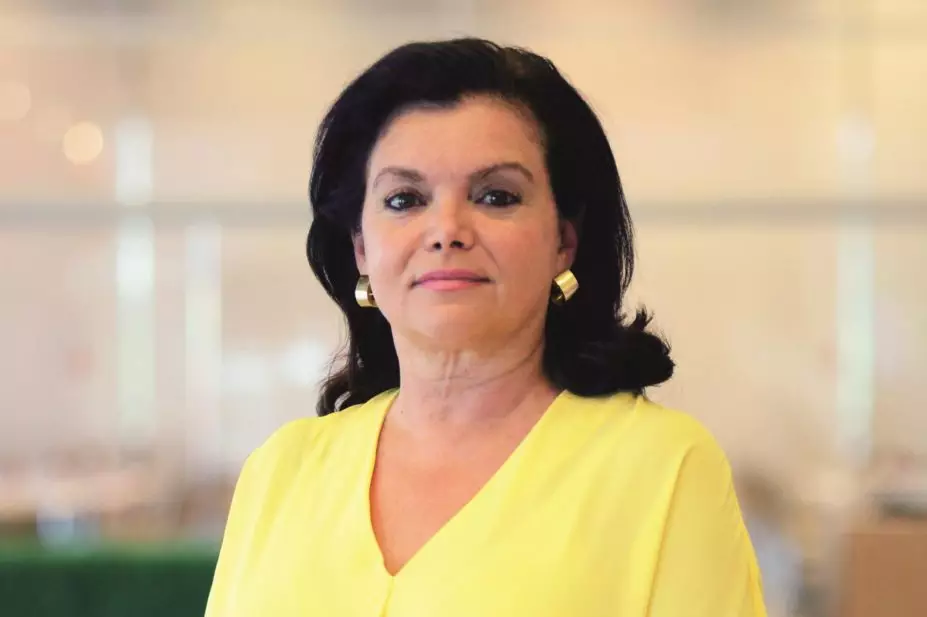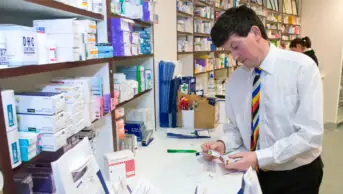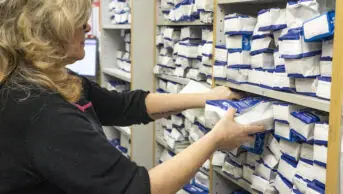
International Pharmaceutical Federation (FIP)
Carmen Peña is the first woman and first pharmacist from Spain to be elected as president of the 102-year old International Pharmaceutical Federation (FIP), the global body that advocates pharmacy. Through its 132 national organisations, academic institutional members and individual members, FIP represents more than three million pharmacists and pharmaceutical scientists around the world. She took office on 5 September 2014 for a four-year term. She is also president of the General Pharmaceutical Council of Spain.
How does it feel to be the first woman president of FIP?
The job of FIP president is the same, in terms of responsibility, whether you are a woman or a man. On the other hand, I recognise that gender equality is not present in all countries, and that being FIP’s first woman president is positive — it’s an example of what women can achieve because sometimes we don’t know our possibilities and need references. So, I am, of course, honoured to be the first woman president of FIP.
Do you think the gender of the pharmacist affects the practice of pharmacy?
Our profession is, first and foremost, a caring one with expertise — qualities that either gender can be expected to fulfil. However, in many countries women are more frequent pharmacy visitors than men. Women tend to be the ones who seek health advice, care for children, partners and parents, and who are in charge of medicines in the home. And women are sometimes more comfortable speaking with another woman, not because they have more knowledge than men but perhaps because the level of empathy is stronger. The more common presence of women in the workforce means that people can now choose to seek advice from a woman. Fifty years ago that would not have been an option.
What is FIP doing to support pharmacists in Africa dealing with the Ebola outbreak?
In November 2014, FIP released a set of resources on the disease for pharmacists, compiled by an emergency task force set up in response to requests for guidance from our members.
FIP has been assisting our members in affected countries, through disseminating requests for much needed equipment. In addition, FIP is now developing guidelines for pharmacy organisations on organising and planning pharmaceutical response during disasters. We know that the role of the pharmacy team tends to evolve and expand in times of civil emergency and this guidance will give direction and strategy.
Should pharmacists let go of the dispensing process?
No. Dispensing is not only sticking a label on a box or counting tablets; it’s a process that includes clinical checks and ensuring that medicines are used properly through understanding individuals and giving advice. We must consider the global picture. The type and extent of involvement of pharmacists in the healthcare system varies nationally but also according to local needs. Dispensing, within the context of “responsible use of medicines”, as defined by FIP, should not be belittled. Whether it’s a pharmacist dispensing in a rural area or a pharmacist overseeing dispensing in a large modern hospital, he or she is applying expertise in medicines. Pharmacists add value to a medicine through dispensing.
Would remote supervision — operating a pharmacy in the absence of a pharmacist — constitute a threat to patient safety?
Remote supervision inevitably involves technology. We should take advantage of the opportunities technology offers to improve access but not at the expense of pharmacists not being physically present. Absence poses risks, and controls are needed. We want the best quality advice and high security and these require physical presence. A pharmacy without a pharmacist is not a pharmacy. The act of pharmacy is not merely technical. It’s about human factors. Even a technologically advanced country like Japan has decided that “the five senses of the pharmacist” must be present for certain medicines to be dispensed.
We cannot confuse medicines with normal items of commerce. The patient is not a consumer. He takes a medicine because it is needed. There may be different models for remote supervision but technology is only a facilitator, not an end. It cannot replace the pharmacist.
What are some of the advanced roles that you envisage pharmacists doing in the future?
There are plenty of possibilities but what an advanced role is depends on the situation in a particular country. In the Philippines, for example, pharmacists have recently been given authority to vaccinate, so they are now applying their expertise in this advanced role, whereas in India, pharmacists are treating tuberculosis. In other places, pharmacists have taken on pioneering roles, for example in Switzerland, quality circles [meetings] with doctors to resolve problems surrounding medication, prescribing and dispensing. I see pharmacists’ roles in pharmaceutical triage and monitoring treatment outcomes becoming more recognised, formalised (such as through protocols), expanded and integrated into the health system by governments. We will also see ever more specialised roles, such as in adherence and nuclear pharmacy, as well as the development of credentialing for such roles.
However, pharmacy is not all about so-called advanced roles. In some places, where there might not be advanced services on offer, pharmacists have nonetheless crucial involvement in healthcare, as highlighted in countries affected by Ebola where pharmacists are on the frontline, correcting false and potentially life-threatening information.
Interview by Benedict Lam


